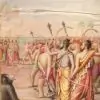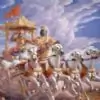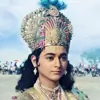Originally posted by: Chandraketu
The Avadhis did have a right to who their queens were, or weren't. But they didn't have any rights or inputs into the private lives of their kings. Like Dasharath had 350 wives other than KSK, but nobody ever bothered about them. Sita's status could have been like them. In fact (while it's not in Valmiki), even Rama drew the line at a point - when some suggested that he re-marry, he rejected such popular desires. So it's not like he blindly acquiesced to everything his subjects wanted. And if he denied them the 'right' to a new queen, he would have been on the same legal plane in denying them the 'right' to a divorced/separated Sita.Returning to parent's home was a disgrace? Somebody might want to mention that to Subhadra, who even after marriage spent most of her time at Dwaraka, except for the 12 years that the Pandavas ran Indraprastha. Same for Uloopi, who never went to Indraprastha. In fact, even after the war, Subhadra seemed to have spent most of her time in Dwaraka, except for the time that Parikshit was born and before: when Krishna returned to Dwaraka after the Ashwamedha yagna, Subhadra went with him. Did the customs change so radically between treta and dwapar yugas?Whether Sita was queen or not was a public issue. Whether she remained Rama's wife or not was nobody's business but theirs.
I was gone from this topic from thursday and how many posts? WOW! I am a little late in this discussion because of my absence but I had to say this. I agree wholeheartedly with Chandra. What was the need for Sita to sit on the throne along with him? Kaushalya, Sumitra, and Kaikeye did not do so even though they were principle queens. No one thought any thing of it. Ramji could have done the same for Sita and kept her with him. I don't think Sita would have cared about the crown. We know for sure that he would not have married again so Sita could have stayed in the palace just as his wife.


























